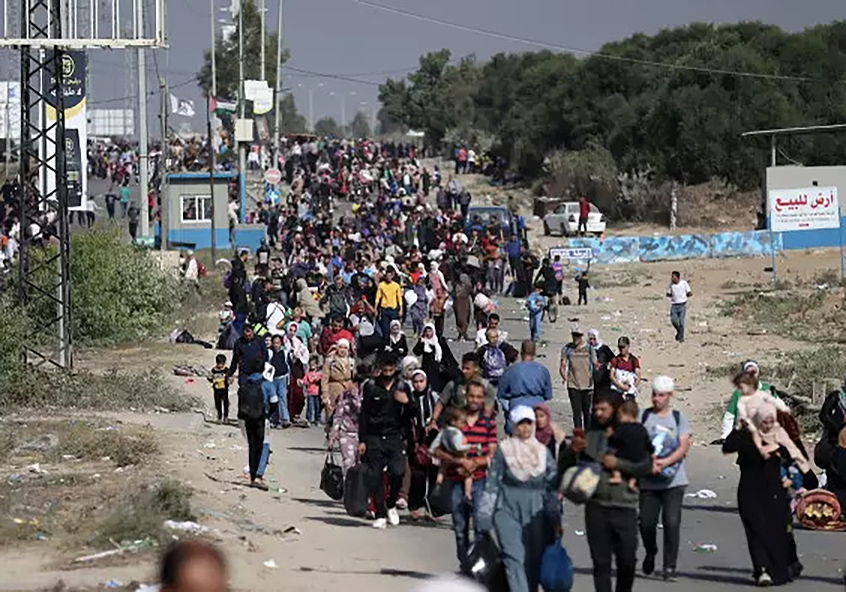Th3G3ntleman
Superstar
Weren't these the same people criticizing pelosi and Schumer when they were wearing kente cloth.
Didn't you say you were leaving? You have the most post in this thread outside of a bot ran by 20 people in a factory in India.
Weren't these the same people criticizing pelosi and Schumer when they were wearing kente cloth.
Y’all keep quoting and mentioning me. Then get mad.Didn't you say you were leaving? You have the most post in this thread outside of a bot ran by 20 people in a factory in India.

Posting umad smilies after you were literally crying drunk at 5 in the morning begging to be banned from the thread is a weird choiceY’all keep quoting and mentioning me. Then get mad.
It’s a wrap for Gaza. Hamas doesn’t have a future anymore. And your little protest ain’t going to make a difference.
Maybe focus on ways we can get Bibi out of power and find a solution here instead of crying because a nikka in NC doesn’t feel the same way as you.



Visit the Gaza projections website for the complete report.
The projections, which are not predictions, cover the period from February 7 to August 6, 2024 (six months). The projections cover three different scenarios: ceasefire; status quo; and escalation. Over the next six months the report estimates that:
With no epidemics occurring, the projection for the ceasefire scenario would be 6,550 excess deaths, for the status quo scenario 58,260 excess deaths, and for the escalation scenario 74,290 excess deaths.
With epidemics occurring, the projection for the ceasefire scenario would be 11,580 excess deaths, for the status quo scenario 66,720 excess deaths, and for the escalation scenario 85,750 excess deaths.
Under the ceasefire scenario the projections suggest that infectious diseases, would be the main cause of excess deaths. Traumatic injuries followed by infectious diseases would be the main causes of excess deaths in both the status quo and escalation scenarios.
Even in the best-case scenario of an immediate ceasefire there would continue to be thousands of excess deaths after a ceasefire was agreed. These would only be mitigated by rapid action to improve the provision of water, sanitation and shelter, and restore functioning healthcare services in Gaza.
The breakdown of water and sanitation, inadequate shelter and insufficient food intake leads to a projected high risk of excess deaths from endemic infectious diseases, particularly respiratory tract infections. If infectious disease epidemics occur, cholera, measles, meningococcal meningitis, and polio are epidemics projected to potentially cause the most excess deaths.
While a ceasefire may reduce trauma-related deaths, our projections show excess deaths due to wounds and complications from traumatic injuries would continue to occur, highlighting the critical importance of providing secure and operational healthcare facilities that can offer trauma care and rehabilitation services.
Even though the total numbers of estimated excess deaths from maternal and neonatal causes are relatively small compared to other health areas, every loss of a mother has severe consequences for family health and wellbeing. It could see progress made in maternal and neonatal survival put back over a decade.
The researchers are undertaking this work as Gaza's health infrastructure is no longer adequately functioning. The impact of the crisis on Israel is better understood and there is not a lack of capacity to respond.
Professor Francesco Checchi of LSHTM, co-leader of the project team, said: “We wanted to develop and share evidence for decision-makers, to show how this crisis could play out in terms of lives.”
Professor Paul Spiegel of the Johns Hopkins Center for Humanitarian Health, co-leader of the project team, said: “Even if a ceasefire were declared tomorrow, thousands more people would likely die as a result of the conflict. Our analysis can help humanitarian organizations, governments, and others plan more effectively and save lives.”
Posting umad smilies after you were literally crying drunk at 5 in the morning begging to be banned from the thread is a weird choice

Defying Biden
Defying Biden
